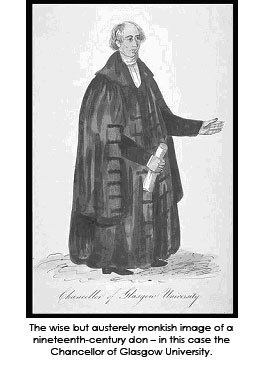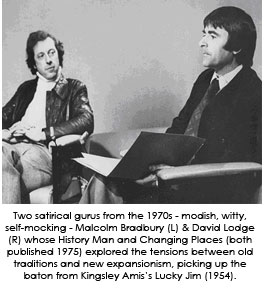MONTHLY BLOG 82, WRITING PERSONAL REFERENCES
If citing, please kindly acknowledge copyright © Penelope J. Corfield (2017)

What do today’s academics spend their time doing? Next to marking essays and planning research applications, one of the most common tasks is writing personal references for past and present students (and sometimes for colleagues too). Happily, such evaluations are not presented anonymously.1 Yet that makes writing them all the more testing.
The aim is to do full justice to the person under consideration, whilst playing fair with the organisation which is receiving the recommendation. Sometimes those aims can be in conflict. Should you recommend someone for a job for which they are not suitable, even if the candidate pleads with you to do so? The answer must be: No.
Actually I can remember one example, some years ago, when an excellent postgraduate wanted to apply for a new post which demanded skills in quantitative economic history. Since she did not have those special skills, I hesitated. She implored me to write on her behalf – it was in an era when new academic posts were rare – and, reluctantly, I did so. However, I told her that my reference would explain that she did not have the required skills, although she would be a great appointment if the University in question decided to waive those preconditions. (It was theoretically possible). In the event, she did not get the job. For the future, I resolved not to waste everyone’s time by writing references in unsuitable cases. A polite refusal does sometimes upset applicants. But it’s best to be frank from the start – and certainly better than writing a thumbs-down reference. (I decline to act if I can’t find anything positive to say).
Truth with tact is the motto. When writing, it’s good to dwell on the candidate’s best qualities, in terms of past attainments and future potential. But it’s seriously unwise to go over the top. Referees who praise everyone unreservedly to the skies quickly lose credibility. What is written should strive to match the best qualities of the person under discussion. Candidates often get called for interview; and it undoubtedly helps interview panels if the candidates broadly resemble their references. (It is ok, by the way, to warn panels in advance in cases of exceptionally nervous interviewees, who may need help to ‘unfreeze’).
Equally, when writing in support of candidates, it’s seriously wrong to go not over but under the top. There used to be an old-fashioned style of wry deprecation. It had a certain period charm. Yet in recent decades there’s been a definite inflation of rhetoric. Wry self-deprecation is still ok, when used in front of those who understand the English art of meiosis or ironic understatement. But deprecatory assessments, or even deprecatory asides, about other people are distinctly unhelpful in today’s competitive climate. Even one passing put-down can harm a candidate, when competing against rivals who are described in completely flattering terms.
Again, I remember a case at my University, where the venerable referee – a punctilious scholar of the old school – was warm but could not resist adding a critical aside. The candidate in question was much the best. Yet she lost out in the final choice, on the grounds that even her friendly referee had doubts about her. Really annoying. She went on to have a distinguished career – but elsewhere. We lost a great colleague.
Some months later I had a chance to talk with the venerable referee, who expressed bafflement that his candidate did not get the job. He was blithely unaware that he had, unintentionally, stabbed her in the back. It was a complete conflict between different generational styles of writing references. Later, I advised the candidate not to press me for further details (since these things are all confidential) but simply to change her referees, which she did. Such stylistic inter-generational contrasts still continue to an extent, although they take a somewhat different form these days. Either way, the moral is that balanced assessments of candidates are fine; shafts of sardonic humour or any form of deprecatory remarks aimed at an absent candidate are not.
Then there’s the question of different international cultures of writing references. Academics in some countries prefer a lyrical rhetoric of flowery but imprecise praise which can be very hard to interpret. (Is it secret humour?) By contrast, other references from a different stylistic culture can be very terse and factual, saying little beyond the public record. (Do they reflect secret boredom or indifference?) My advice in all cases is for candidates to choose referees from their own linguistic/academic/cultural traditions, so that recipients will know how to decode the references. Or, in the case of international applications, then to choose a good range of referees from different countries, hoping to balance the contrasting styles.
So there we are. Refereeing is an art, not a precise science. Truth with tact. Every reference takes thought and time, trying to capture the special qualities of each individual candidate. But, a final thought: there’s always one exception to the rule. The hapless Philip Swallow in David Lodge’s brilliant campus novel Changing Places (1975) encounters this problem, in the form of the former student demanding references – who never goes away. The requests pile up relentlessly. ‘Sometimes he [the former student] aimed absurdly high, sometimes grotesquely low. … If [he] was appointed to any of these posts, he evidently failed to hold them for very long, for the stream of enquiries never ran dry’. Eventually, Swallow realises that he is facing a lifetime commitment. He therefore generates an ‘unblushing all-purpose panegyric’, which is kept on permanent file in the Departmental Office.2 It’s just what every referee secretly craves, for use in emergencies. Just make sure that there are no flowery passages, no hyperbole, no ambiguities, no accidental put-downs, no coded messages, no brusque indifference, no sardonic asides, no joking. Writing personal references, on the record, is utterly serious and time-consuming business. Thank goodness for deadlines.
1 For my comments on writing anonymous assessments, see BLOG/80 (Aug. 2017) and on receiving anonymous assessments of my own work, see BLOG/81 (Sept. 2017).
2 David Lodge, Changing Places: A Tale of Two Campuses (1975), pp. 28-9.
For further discussion, see Twitter
To read other discussion-points, please click here
To download Monthly Blog 82 please click here



 In fact, the reality is different in many ways. The tertiary sector is very variegated. It has faults, but they are often too neo-brutally managerialist rather than slumberingly Porterhousian.
In fact, the reality is different in many ways. The tertiary sector is very variegated. It has faults, but they are often too neo-brutally managerialist rather than slumberingly Porterhousian.
 Divisions between Universities are now institutionalised into rival lobby organisations. The Russell Group (founded 1994) represents 20 Universities, self-defined as the research elite, constituting a limited company (no: 6086902), operating from a base in Cambridge. Feeling excluded, another 19 smaller research institutions created the 1994 Group to defend their research credentials. It operates with an Executive Board, chaired by an academic, with at least five permanent staff members. A similar corporate structure services the University Alliance, which represents 23 ‘major business-focused’ Universities. And from 1997 onwards the Campaign for Mainstream Universities (CMU) has organised 27 former Polytechnics and University colleges – then known as ‘new’ Universities although many already had long histories. This group now operates as a London-based Think-tank, known as the Million+ Group. These divisions mark a classic case of self-divide and be ruled.
Divisions between Universities are now institutionalised into rival lobby organisations. The Russell Group (founded 1994) represents 20 Universities, self-defined as the research elite, constituting a limited company (no: 6086902), operating from a base in Cambridge. Feeling excluded, another 19 smaller research institutions created the 1994 Group to defend their research credentials. It operates with an Executive Board, chaired by an academic, with at least five permanent staff members. A similar corporate structure services the University Alliance, which represents 23 ‘major business-focused’ Universities. And from 1997 onwards the Campaign for Mainstream Universities (CMU) has organised 27 former Polytechnics and University colleges – then known as ‘new’ Universities although many already had long histories. This group now operates as a London-based Think-tank, known as the Million+ Group. These divisions mark a classic case of self-divide and be ruled.